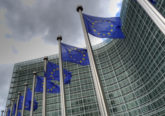
As the European Union lurches from crisis to crisis, the chances of getting a new EU treaty are on the rise. Such a new treaty might be the ‘Treaty on Stability, Coordination and Governance in the Economic and Monetary Union’, which is due to be signed in March by all EU members apart from the Czech Republic and the UK. Or, if the worst fears of the Eurozone countries are realised and Greece defaults, a new treaty will be necessary to clean up the ensuing mess.
Although most attention tends to focus on the ins-and-outs of treaty negotiations, once a treaty has been signed it still has to be ratified by each country. And the ratification process has rarely gone smoothly. Of the six treaties signed since the Single European Act (SEA) in 1986, only one, the Amsterdam treaty of 1997, has been ratified without problems. The most significant hurdle to ratification has been the referendum. Of the 19 times a referendum on an EU treaty has been offered (not counting the 3 times a second referendum has been held following an initial rejection) the treaty has passed eight times, been rejected five times and the referendum cancelled six times. Clearly, ratification by referendum is a risky route.
Why then do countries decide to hold referendums? My research (currently under review, a draft of which is available here) suggests that three factors are particularly important: rules, elections and parliamentary institutions. The most obvious influence on whether a country holds a referendum is the legal requirement to do so. Two EU members, Ireland and Denmark, have such an obligation. However, the fact that Denmark has not held a referendum on two treaties — Nice and Lisbon — suggests that referendums are not simply about legal obligation. In the Danish case, a referendum is required when a treaty transfers powers from the national government to an international body. It sounds like a technical, legal decision. But this is deceiving. Whether or not such powers are actually transferred has, in practice, been a political decision. Similarly, the Irish obligation to hold a referendum stems from a court ruling on the SEA. Irish governments have held referendums on every treaty since, though they have never actually tested whether the ruling strictly applies to other treaties.
A new EU treaty is a difficult electoral issue for a government. Unlike other issues such as taxation or welfare spending, in these cases there is very little room for strategic manoeuvring. Once a treaty has been signed the only choice available to national governments is a yes or a no vote to ratification. Political parties are, by and large, averse to taking electoral risks. By holding a referendum on the EU they hope to take the EU off the electoral agenda and avoid defections from eurosceptic voters. This is likely to be an issue when the EU is unpopular with the electorate, making referendums more likely to be held when the EU is unpopular. However the EU is not always at the forefront of voters’ minds: although eurosceptics are frequently vocal in their opposition to the EU, the empirical evidence suggests that, overall, European voters don’t consider the EU as an important issue unless events bring it to their attention (such as the signing of a new treaty). Consequently, referendums are more likely to be held when elections are due soon after a new treaty is signed.
Finally, whether or not a country has a bicameral parliament and/or a semi-presidential system of government also has an impact on the likelihood of a referendum being held. In a country with a unicameral parliament, a treaty only requires the consent of a single chamber of parliament. The addition of a second parliamentary chamber and an executive president increases the number of obstacles a treaty must overcome before ratification. As the number of obstacles increases, so too does the likelihood of a referendum being held, particularly as elections draw near and the EU becomes a more valuable bargaining chip between different levels of government because of its increased electoral leverage.

By looking at these variables, we can make predictions. Using a statistical model developed in my research it is possible to estimate the probabilities of each EU member holding a referendum on a new treaty signed between now and the end of 2013. First a caveat: even if the statistical model was perfect (and it is not), it is a probabilistic model, and even countries that have a very high probability of holding a referendum will not necessarily hold one. Free will and strategy will always play a role in decision making that cannot be modelled. Nonetheless, the model can show where political pressure to hold referendums is likely to be high.
The model predicts (i.e. the probability of a referendum is greater than chance: 0.5) that four EU members are likely to hold referendums on a new treaty. Regardless of when a treaty is signed, Ireland and Denmark are likely to hold referendums. If a new treaty is signed before the French (parliamentary) elections in June, and public opinion does not grow more favourable to the EU, then pressure to hold a referendum will be high. Similarly, if a treaty is signed between November 2012 and the Austrian election due in September 2013, Austria is also likely to hold a referendum. The graph below shows how the probability of a referendum changes across a range of hypothetical treaty signing dates for these four countries and the two countries next most likely to hold a referendum, Romania and Poland.
Although these results suggest that several referendums are likely to be held regardless of when a new treaty is signed, EU governments are signalling that they will do their best to avoid them. No country has yet announced they will hold a referendum on any new treaty. Ireland, the country most likely to hold a referendum, is doing its best to avoid holding one, though such a decision is likely to be challenged in court. Helle Thorning-Schmidt, the Danish Prime Minister, has already announced Denmark will hold a referendum on the EU, but only on Danish EU opt-outs, not on a new treaty. Past experience suggests that holding referendums on any aspect of the EU (i.e. the adoption of the Euro) diminishes the pressure to hold a treaty ratification vote.
EU leaders were heavily criticised for being undemocratic when only Ireland held a referendum on the Lisbon Treaty, and almost certainly will face similar criticism if they avoid a referendum on a new treaty. So why might they do so? Referendums can, and do, fail. They introduce uncertainty into plans for reform. As governments increasingly look, not to voters, but to nervous financial markets and jumpy credit ratings agencies for the impact of their policies, uncertainty is the enemy. However, the financial crisis and the EU are becoming increasingly entwined in the minds of European voters. Only time will tell if politicians will continue to risk their prospects of re-election in order to ratify a new treaty, or if once again, the EU will be put directly to the ballot box.
Chris Prosser is a DPhil student in Politics at St. Catherine’s College, Oxford.







1 Comment